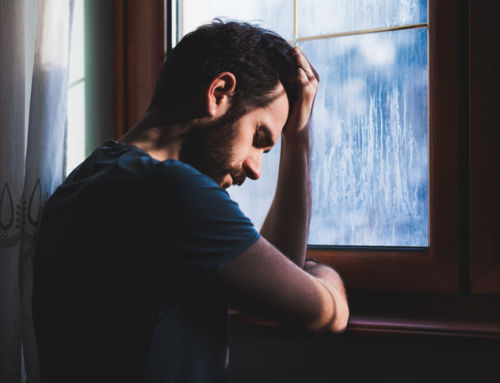When the term health is mentioned, it’s often associated with the absence of an illness. Although this is true, the health of an individual is broad and covers their physical, social and mental well-being.
Mental well-being is an important component of a person’s overall well-being. However, it’s often overlooked as a negligible determinant of health. The result is that mental illnesses have silently yet increasingly become an epidemic in today’s society.
Mental illnesses don’t discriminate; they affect people of all races, ages, nationalities, religions and backgrounds. People of any gender can experience mental health issues, but surveys have shown that mental health issues may look different for men.
Stigma and gender stereotypes make conversations about men and mental health difficulties. Seeking help or psychosocial support can be even more difficult. This is why we began our primary treatment program in Austin, Texas.
Prevalence of Men’s Mental Health Issues
Mental disorders in men are widespread across the nation. A survey conducted by the National Center for Health Statistics (NCHS) suggests that 10% of men suffer from depression and anxiety.
Notably, 60% of men experience at least one trauma in their lives. Therefore, men are more susceptible to trauma resulting from physical assault, accidents, disaster, combat or witnessing injury or death.
More men suffer from some form of mental illness at any given time, and the numbers are growing. It’s telling that 49% of men feel more depressed than they admit. Men are also 3.7 times more likely to commit suicide than women and two times more likely than women to binge drink.
Texas has one of the highest rates of male mental health disorders in the U.S. This is because Texas is home to the second-largest population of Americans after California, hosting 8.7% of the country’s population.
Statistically, this means male mental health in Austin, the state capital, should be a serious concern. Alta Loma’s recreational therapy program was designed with men’s mental health issues in Austin, TX, in mind.
Common Mental Health Disorders Among Men
1. Depression
Depression is one of the leading mental health conditions among men today. According to the CDC, at least 5.5% of young men experience depression.
Despite that number being significantly less than for women in the same age group, many cases of male depression go undiagnosed. Doctors commonly miss depression in men became men’s symptoms are less typical of major depressive disorder.
Additionally, while men are less likely to be diagnosed with depression and attempt suicide at lower rates, they’re 3.7 times more likely to die from suicide than women. This is because men tend to choose more lethal weapons, such as firearms, to commit suicide.
2. Anxiety
Men experience anxiety disorders in the forms of panic disorder, social anxiety, phobias, obsessive-compulsive disorder (OCD) and generalized anxiety disorder (GAD).
While GAD is more prevalent among women than men, both genders suffer from OCD and social anxiety at nearly the same rate. Furthermore, men with these mental health disorders are more susceptible to substance use disorders and attention deficit hyperactivity disorder (ADHD).
3. Substance Abuse Disorders
According to Monitoring the Future, a survey on national substance abuse, substance use disorders is more common in men because men are more likely than women to misuse drugs, including hallucinogens, marijuana and prescription painkillers. As mentioned previously, men are twice as likely to binge drink as women, making them more prone to alcohol-related hospitalizations and deaths.
The tendency for men to abuse drugs more than women is attributed to men’s drug use — abuse of drugs and alcohol is considered more socially acceptable and even associated with masculinity. As such, those traits are less likely to be recognized as mental health symptoms.
4. Post-Traumatic Stress Disorder
Post-traumatic stress disorder (PTSD) is often thought of as a condition that solely affects military veterans. However, it’s much more common in men than imagined.
At least 60% of men experience a traumatic event in their lifetime. These traumas can result from accidents, combat, physical assault or even witnessing death or injury. Exposure to these traumatic events can have serious and long-term effects on male mental health issues.
For instance, young men exhibiting symptoms of post-traumatic stress disorder report interference with their daily life and functioning. Often these men suffer in silence and will ignore behavioral and physical symptoms of the condition and other mental health issues.
5. Bipolar Disorders
Bipolar disorder is characterized by extreme highs (mania) and lows (depression) in mood and activity levels.
Although bipolar disorder, formerly known as manic depression, isn’t as common in men as other mental health conditions, the vast majority of the cases — approximately 83% — are classified as severe.
The first symptoms of these disorders often manifest between 15 and 24 years in men. Usually, the symptoms can be written off easily as normal teenage angst or common young male behavior but are often linked to high-risk activities and overconfidence.
Why Don’t Men Talk About Mental Health?
The reality that men are less likely to receive mental health treatment doesn’t mean they don’t need mental health care and support. Men tend to find it more difficult to talk about their mental health conditions or reach out to seek treatment.
Many factors contribute to men’s inability to open up about their issues and seek professional help. Traditional gender roles and society’s expectations are two of the foremost reasons men are less likely to speak openly or seek help for mental health problems.
Gender stereotypes regarding men and women can place a huge burden on men — for example, the notion that men should look or behave in a way that demonstrates strength, dominance and control.
Men are expected to be the breadwinners of their families. However, while this isn’t inherently bad, it can exert pressure on men and prevent them from admitting to experiencing mental health issues or seeking mental health services.
Effects of Mental Health Issues on Men
Mental health challenges affect an individual’s emotional, behavioral and physical outcomes. These effects can be long-term if the disorders remain untreated. For instance, mental illnesses in men have been linked to:
- Disability
- Reduction in productivity
- Family conflicts
- Legal and financial problems
- Poverty
- Homelessness
- Social isolation
- Unhappiness
- Substance dependence
- Inability to form or maintain relationships
- Self-sabotage and self-harming behavior
- Weakened immune system
- Other medical complications
The complications from mental health issues in men can be severe if they don’t seek early intervention or receive treatment and support.
How Can You or Your Loved One Get Help?
Deciding to start the conversation around your mental well-being with a friend or loved one takes strength and courage. No matter how hard it seems, don’t be afraid to open up about your mental health to a health care professional. You can freely disclose any abnormal moods or different symptoms you suspect could be linked to mental health disorders.
Also, since men suffer in silence, you probably know someone experiencing mental health problems around you, especially depression and anxiety. You can make a huge difference in their life by taking appropriate action and encouraging them to seek a practicing mental health professional.
Mental Health and Substance Abuse Disorder Treatment at the Alta Loma
At Alta Loma, you or your loved one is guaranteed tailored and effective primary treatment for any mental health issue you may be facing. We understand that the dynamics of mental health disorders occur differently in men.
Our team offers personalized treatment at our Primary Care facility, Supportive Living at The Cottage, and Extended Care at the Villa until you or your loved one’s condition is under control.
Alta Loma also offers scientifically tested and proven recreational therapy for mental health issues in men. You no longer have to suffer in silence or fear the implications of the stigma associated with disclosing your condition and seeking medical help.
Contact Alta Loma Transformational Services today to ensure you or your loved one benefits from our high-quality and patient-centric mental health care services.


